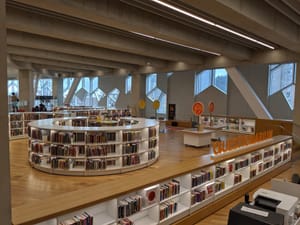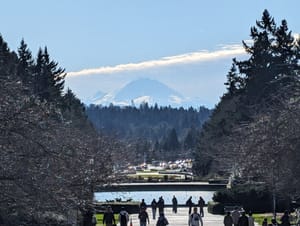Here is the opening paragraph of an article on libraries and the long tail I wrote a while ago.
Discussions of the long tail that I have seen or heard in the library community strike me as somewhat partial. Much of that discussion is about how libraries contain deep and rich collections, and about how their system-wide aggregation represents a very long tail of scholarly and cultural materials (a system may be at the level of a consortium, or a state, or a country). However, I am not sure that we have absorbed the real relevance of the long tail argument, which is about how well supply and demand are matched in a network environment. It is not enough for materials to be present within the system: they have to be readily accessible (‘every reader his or her book’, in Ranganathan’s terms), potentially interested readers have to be aware of them (‘every book its reader’), and the system for matching supply and demand has to be efficient (‘save the time of the user’). [Libraries and the Long Tail: Some Thoughts about Libraries in a Network Age]
I go on to suggest that this dynamic will result in libraries wanting to disclose their presences in more network-level resources. Think of OhioLink for example, which aggregates supply across Ohio collections (a single point of entry to find it/get it services across all Ohio academic libraries), and which aggregates demand (it is a draw for users who have access to a broad aggregate collection). Think of links back to library collections from Google Scholar. And so on.
I quoted this piece in a comment I left on a blog post by Bob Molyneux on the Open-ILS blog. Bob is talking about this phenomenon in action in Georgia Pines.
Georgia has a universal borrower card so if your local library is not in PINES, you can go to one that is and borrow from the PINES system. And what library users are doing is pretty clear, they are making the drive: they want access to the 2 million bibliographic entities and the over 9 million items owned by the libraries in PINES. …
… I was graduated from library school in 1971 and I have seen various fashions about how best to do library service: big regionals or small local and intimate libraries. Back and forth. Back and forth. I believe the jury is now in. Library users are voting with their feet; they want the big, resource rich library. [Every reader his or her book; Every book its reader. Open-ILS blog.]
On the web, I suggest, the desire to use the ‘big, resource rich library’ is even stronger, whether those ‘libraries’ are general network services (Google), specialist services (Google Scholar, Scopus), or aggregate library resources (OhioLink, Georgia Pines).



